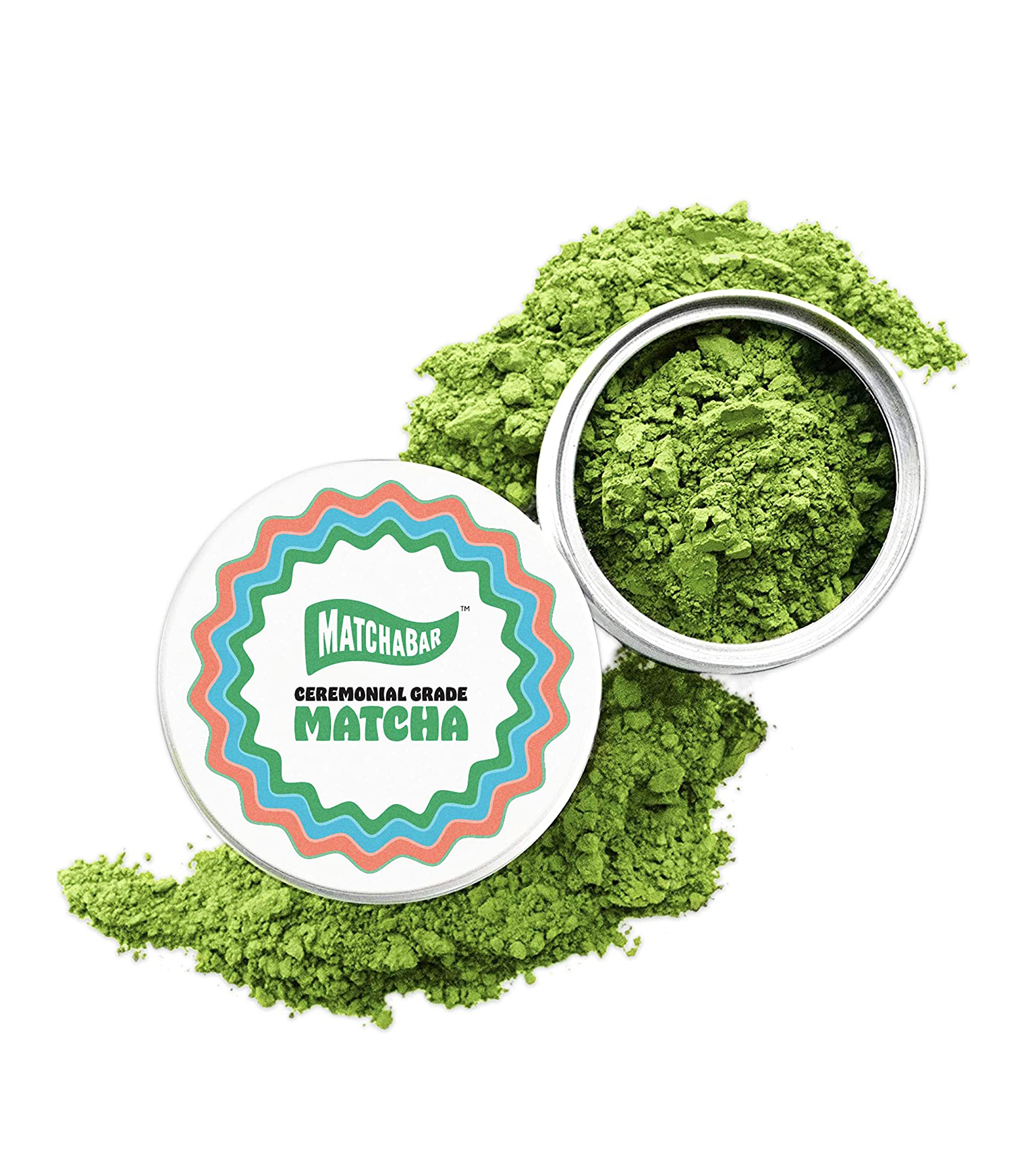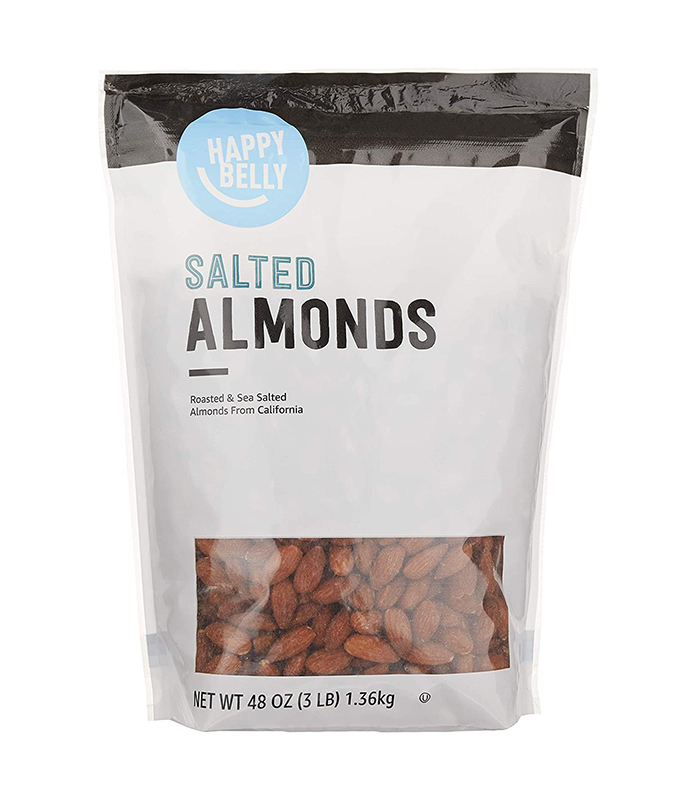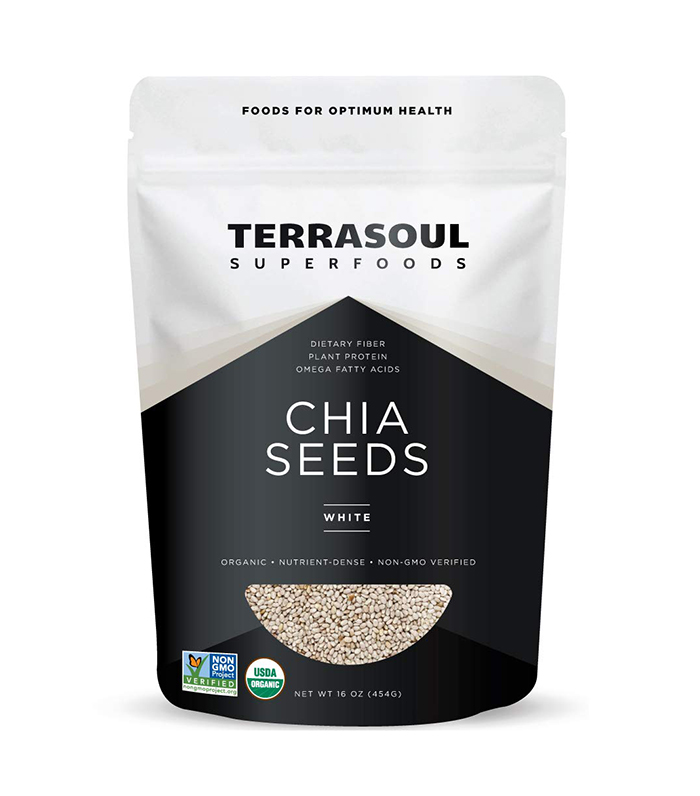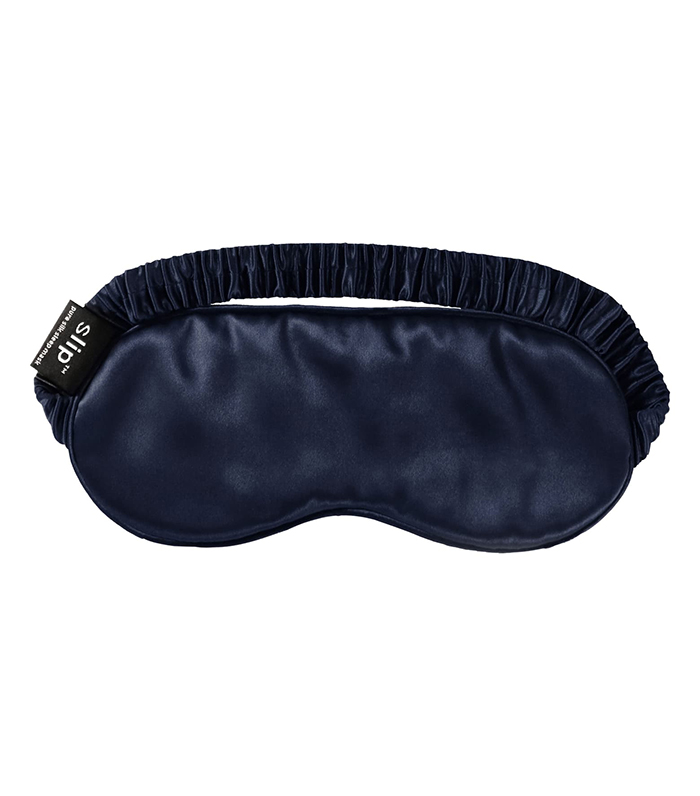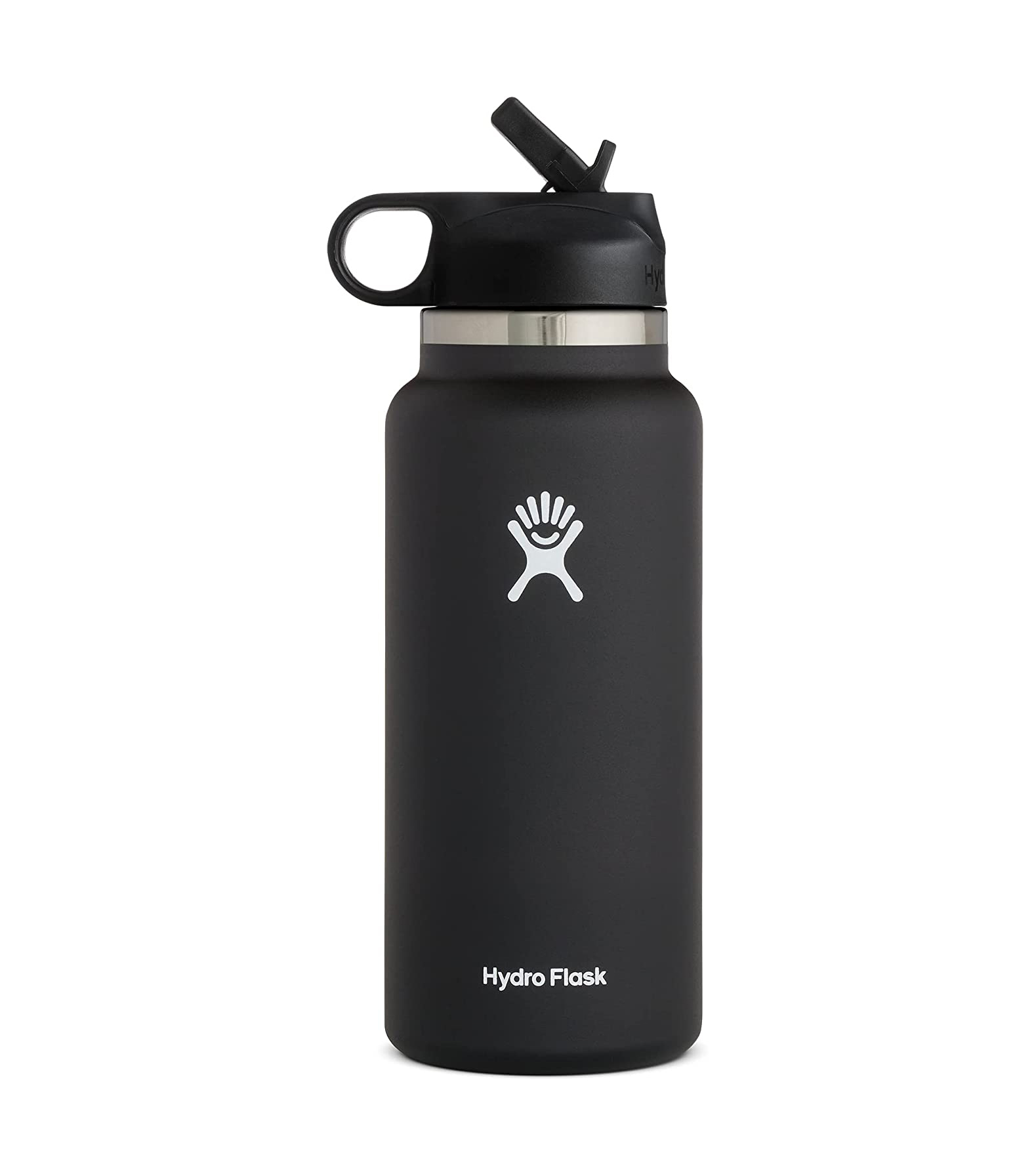10 Signs You're Going Through a Caffeine Withdrawal
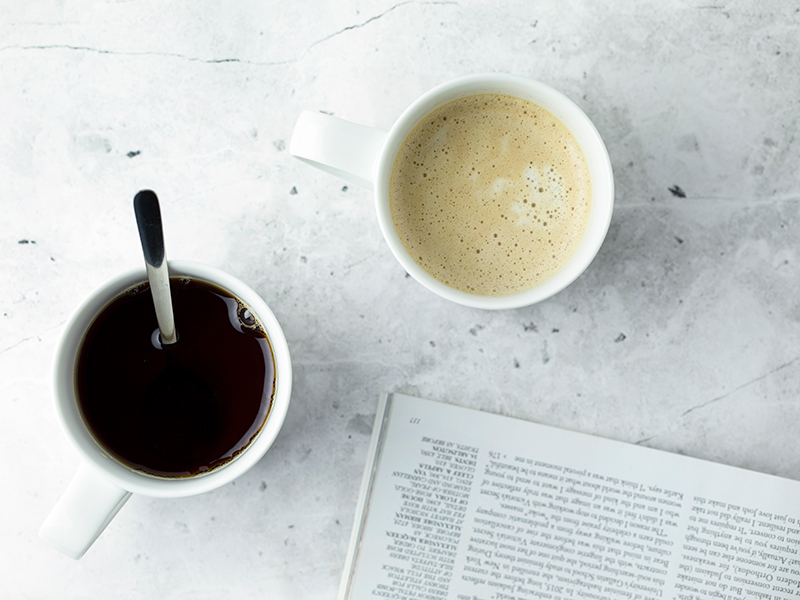
Quitting or cutting back on caffeine is no easy feat. This is especially true if you're used to your daily cup (or two or three or even a vat) of coffee to function. And it's not just coffee—caffeine can be found in teas, chocolate, energy drinks, and sodas. If you quit cold turkey or seriously limit your consumption, you could experience unpleasant withdrawal symptoms. In fact, in 2013, the American Psychiatric Association classified caffeine withdrawal as a mental health disorder.
It's important to note that when consumed in moderation, caffeine is fine. The FDA has cited that for healthy adults, 400 milligrams a day (about four or five cups of coffee) are not generally associated with dangerous, negative effects.
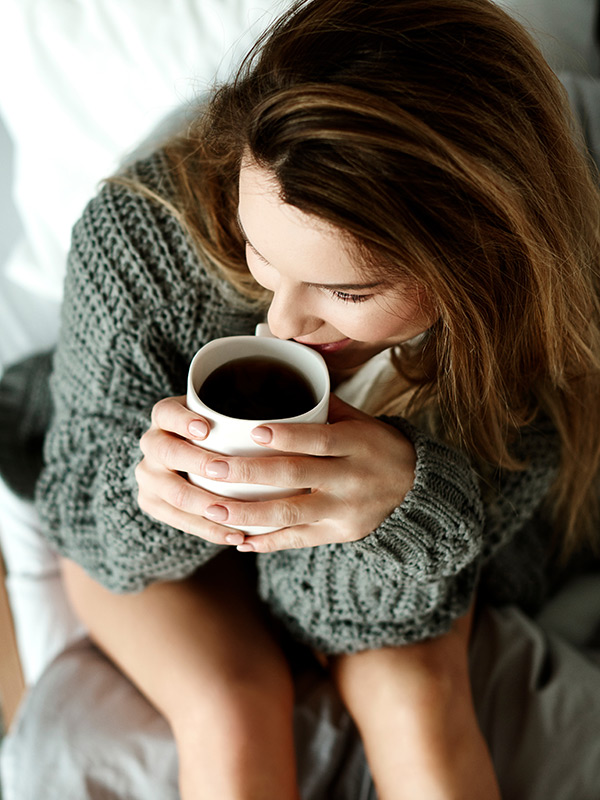
"Studies have shown that moderate coffee consumption can actually have health benefits and may even reduce mortality," explains Sarah Rueven, RD, MS, CDN, of Rooted Wellness. "Coffee and tea, two of the most popular vehicles for caffeine, are good sources of antioxidants. Antioxidants work in our body to quench free radicals, which reduces inflammation and protects against chronic diseases."
But it's important to note that people's sensitivity to caffeine differs, especially if you're pregnant or breastfeeding, have a medical condition, or are taking certain medications. Ultimately, you'd have to talk with your doctor or another healthcare professional to find out if you should cut back on your caffeine consumption.
What Does Caffeine Do?
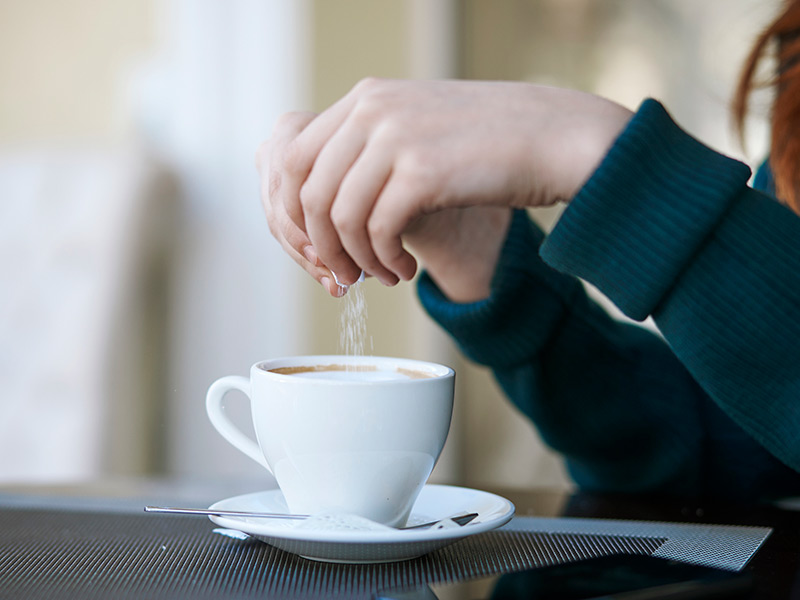
Before we get to the symptoms you might experience if you quit caffeine, it's helpful to find out what it does to your body and why you might not feel great when you give it up.
"Caffeine works primarily on our brain," says Jessica Bushy, NP. "It binds to something called adenosine receptors. By binding to these receptors, the adenosine in our brain can no longer bind or fit there. The natural effect adenosine typically has on our brain is that it makes us tired. However, since it's the caffeine that's now at that receptor site, it doesn't slow things down like adenosine would but actually wakes things up. The body can get used to or adapt to caffeine being present at these receptors. When withdrawn quickly, adenosine rushes back in to bind to the receptors and causes the opposite effect of what the caffeine was doing."

Withdrawal symptoms depend on how long and how much someone was consuming caffeine. If you don't drink that much caffeine or consume it daily, you might not experience any effects. "The first few days can cause fairly significant symptoms for some," Bushy explains. "For people who consume an average amount of caffeine, 100 to 250 milligrams per day, symptoms of withdrawal can last for two weeks or less. For those who consume more caffeine, symptoms can last up to two months. Symptoms are fairly similar on the first few days versus the first few weeks. However, as time goes on, they tend to lessen in intensity."
The type of caffeine consumed can also be a factor when it comes to the severity of symptoms. That's because it depends on how concentrated it is. "The usual eight-ounce cup of green tea contains only 30 milligrams of caffeine, a third of what is in most eight-ounce cups of coffee," Bushy says. "Therefore, tea drinkers are less likely to experience withdrawal symptoms as intensely when they quit."
So what symptoms can you expect? Take a look below.
1. Fatigue
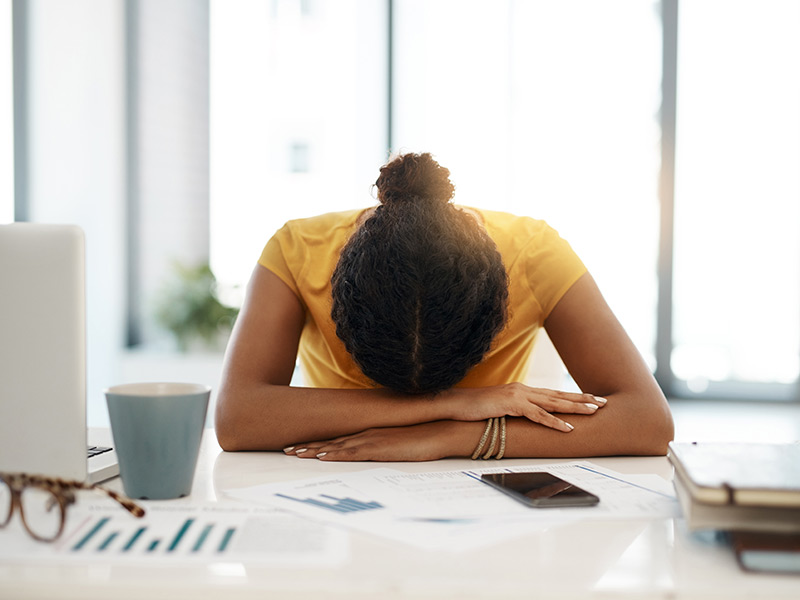
Cue the yawns. "When caffeine is no longer present and adenosine—the chemical trying to make our brain tired—can now bind to its receptor, it makes us sleepy," Bushy explains. "We get even sleepier than we normally would have had caffeine recently not been present because the body is now experiencing a big change. This is why people tend to feel significantly more tired when trying to stop drinking caffeine when they're dependent on it versus when they're weeks to months out from having any."
2. Headaches
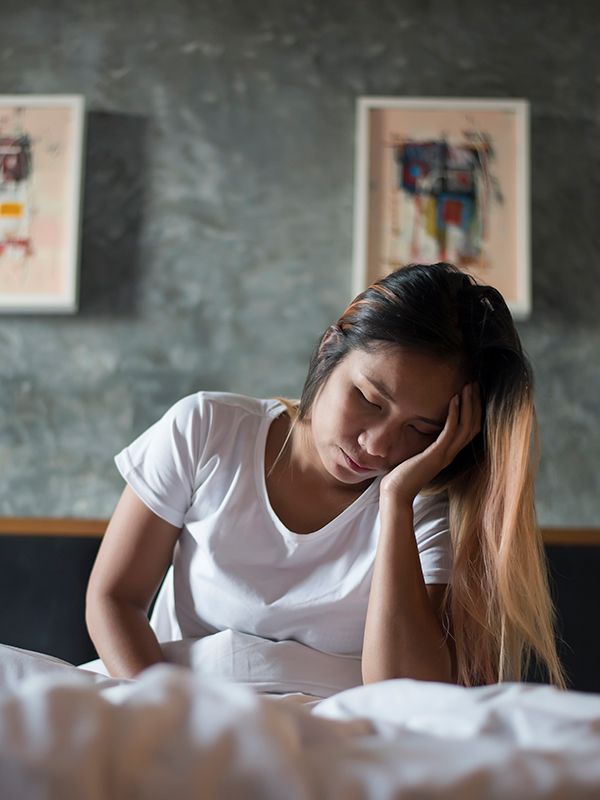
A lot of people experience headaches without their daily cup of coffee. "Caffeine causes blood vessels to constrict and narrow, reducing blood flow in the brain, Rueven says. "When you quit caffeine, blood vessels expand. This change in blood flow is what can lead to the painful headaches associated with caffeine withdrawal."
3. Irritability and Depression
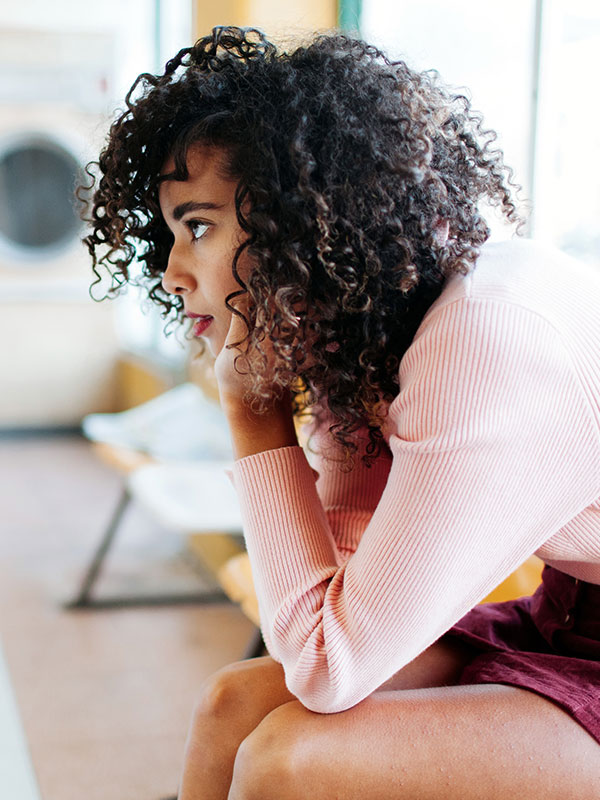
You might turn into a grump or feel sad. It can help to let your family, friends, and co-workers know you're quitting caffeine, and this might be a possible side effect, just in case they're wondering what's up. "This is mostly because caffeine also increases a neurotransmitter called dopamine, which most of us have heard of because it activates the reward or pleasure centers of our brain," Bushy says. "When we abruptly take that caffeine away, our brain senses a large drop in the levels of dopamine and can make us feel sad or irritable."
4. Nausea
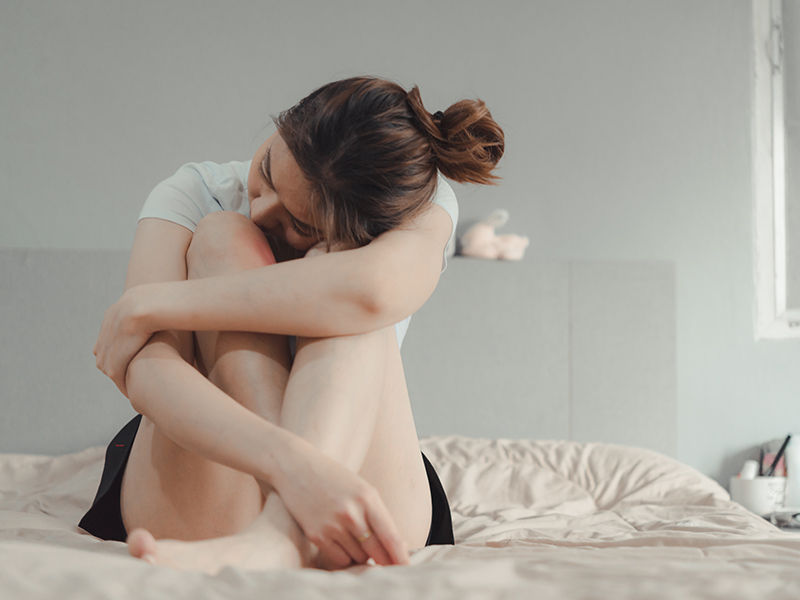
Robin Foroutan, MS, RDN, HHC, a spokesperson for the Academy of Nutrition and Dietetics, says that some people might experience nausea or vomiting. Other flu-like symptoms that may occur are muscle pain and stiffness.
5. Lack of Focus

Since caffeine is supposed to help reduce fatigue and help your focus, you can experience some difficulty concentrating on tasks, or your brain might feel foggy.
6. Digestive Problems
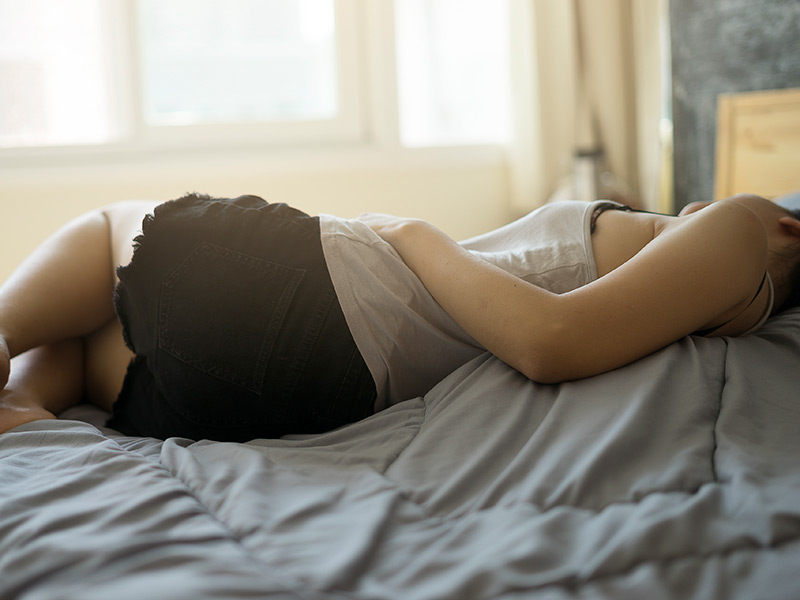
"Caffeine stimulates the colon, increasing the urge to go to the bathroom," Rueven explains. "Without the extra help from the caffeine, some individuals may become constipated when they first quit caffeine. To get things moving again, make sure you fill up on foods rich in fiber like fruits, vegetables, whole grains, nuts, and seeds and drink plenty of water (about three liters per day)."
7. More Hydrated
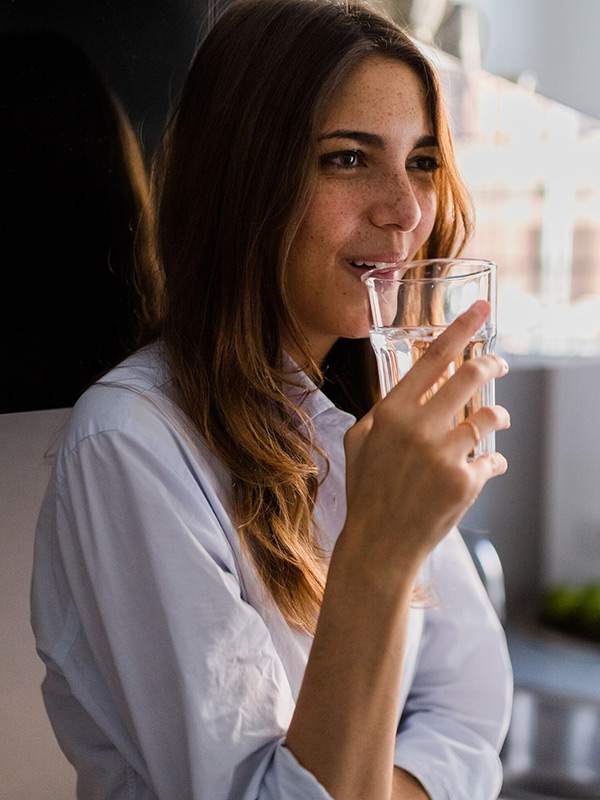
This might help with the bowel-movement issue above. "Caffeine is also a diuretic, causing us to urinate more frequently than with things like water or juice," Bushy says. "In turn, caffeine can cause some skin dryness. The usual recommendation is that for every eight ounces of caffeine you consume, you replace it with an eight-ounce cup of water to ensure you’re staying well-hydrated. Quitting caffeine can automatically make it easier for us to stay hydrated and therefore may help people who experience dry skin."
8. Better Sleep
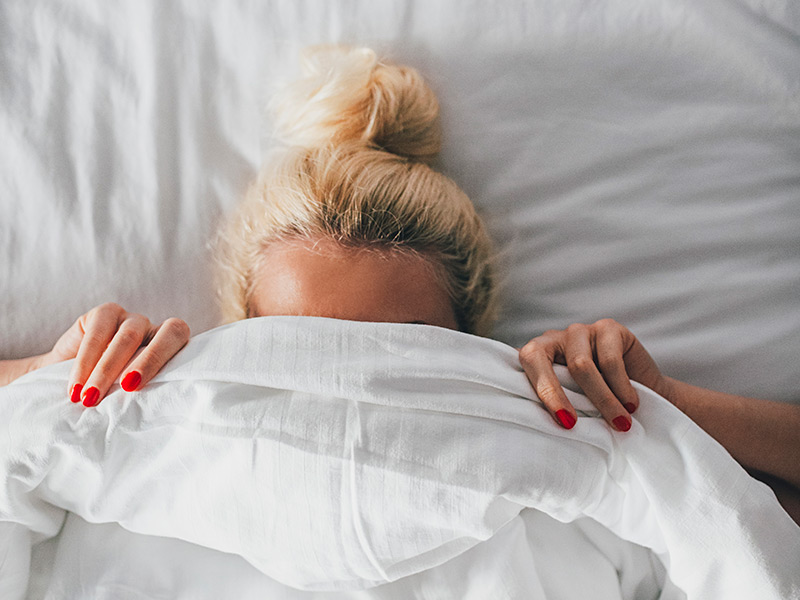
Quitting or limiting caffeine might help you get a good night's rest, which can be elusive for some. And it's especially true if you have insomnia. "I generally recommend people cut back if they're having trouble sleeping," Bushy says. "I also generally don't advise drinking caffeinated beverages after noon to try to reduce trouble falling asleep or even overall sleep quality."
9. Decreased Anxiety

For people who have anxiety, our experts recommend they cut back on caffeine. Foroutan says, "For somebody with intense anxiety, caffeine might be making things worse."
10. Hormonal Changes
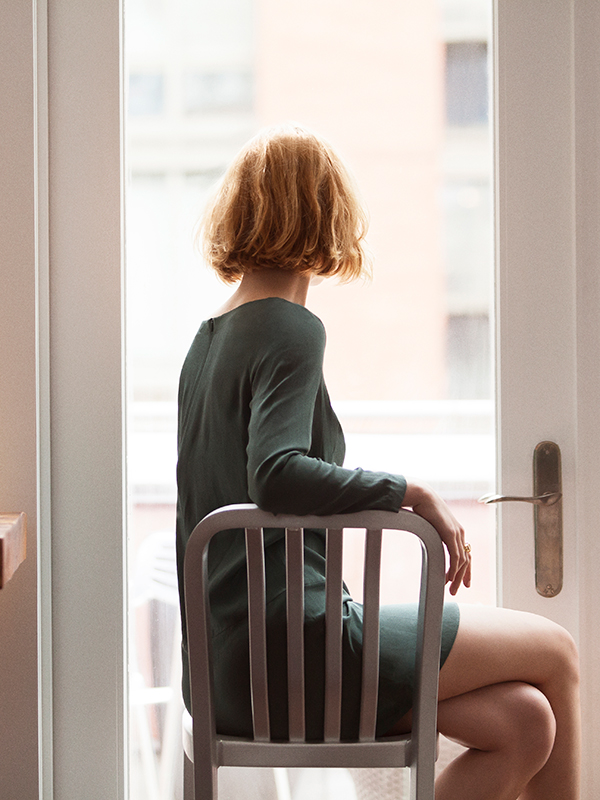
"It can cause some hormonal changes in our body," Bushy adds. "Mainly, caffeine can increase our cortisol levels, which in turn can cause acne in some people. Therefore, quitting caffeine can sometimes be a good thing in people who have increased acne."
How to Deal With Symptoms
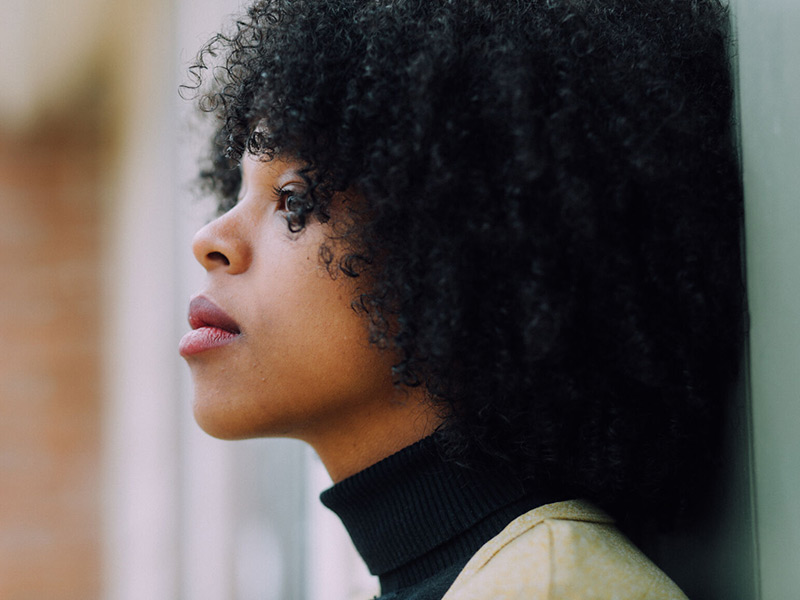
While you might not be able to avoid symptoms altogether, there are some ways to make it better or easier. The number one thing that can help is taking it slow. "To prevent severe withdrawal symptoms, gradually wean yourself off caffeine rather than going completely cold turkey," Rueven suggests. "Slowly start cutting back over the course of two to three weeks."
And Bushy recommends making sure to stay hydrated and get enough sleep, which will help combat headaches and fatigue.
Next up: 7 Things Coffee Does to Your Skin
This article was originally published at an earlier date and has since been updated.
This article is provided for informational purposes only and is not intended to be used in the place of advice of your physician or other medical professionals. You should always consult with your doctor or healthcare provider first with any health-related questions.
Sarah is lifestyle writer and editor with over 10 years of experience covering health and wellness, interior design, food, beauty, and tech. Born and raised in Los Angeles, she attended New York University and lived in New York for 12 years before returning to L.A. in 2019. In addition to her work atBest Knockoff Luxury Clothing , she held editor roles at Apartment Therapy, Real Simple, House Beautiful, Elle Decor, and The Bump (sister site of The Knot). She has a passion for health and wellness, but she especially loves writing about mental health. Her self-care routine consists of five things: a good workout, “me” time on the regular, an intriguing book/podcast/playlist to unwind after a long day, naps, and decorating her home.
